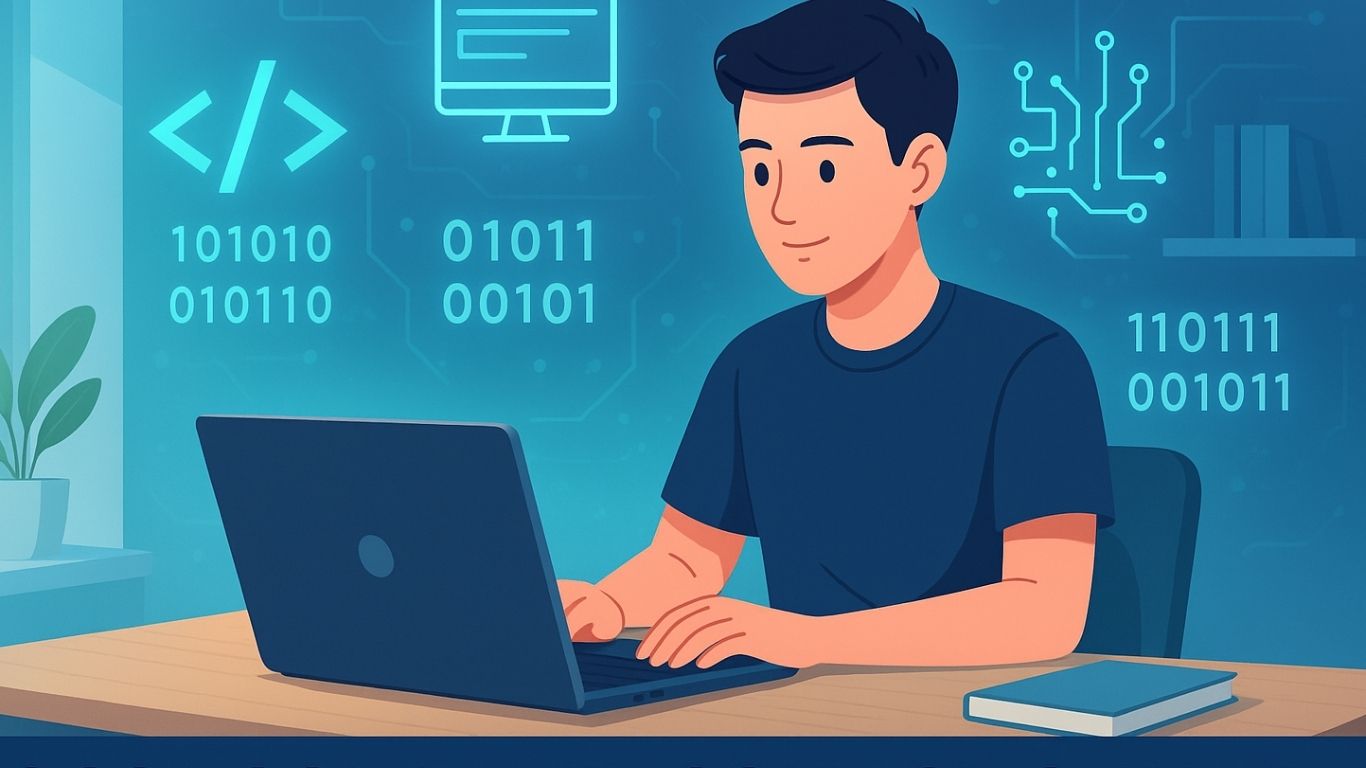In today’s digital world, GCSE Computer Science has become one of the most valuable and in-demand subjects for secondary school students. Whether you want to become a software engineer, game developer, data analyst, or cybersecurity expert, this qualification provides the essential foundation for understanding how computers work — and how to make them work for you.
With the rise of digital learning platforms, many students are now turning to GCSE Computer Science online courses as a flexible, affordable, and effective way to prepare for their exams. In this article, we’ll explore everything you need to know about studying GCSE Computer Science online — from the syllabus and benefits to exam tips and career pathways.
What Is GCSE Computer Science?
GCSE Computer Science is an academic qualification typically taken by students aged 14–16 in the UK. It’s designed to develop a deep understanding of computational thinking, coding, algorithms, and data representation.
The course teaches you how computers operate, how software is built, and how digital systems impact the modern world. It’s not just about using technology — it’s about creating it.
The qualification is offered by several major exam boards, including:
- AQA (Assessment and Qualifications Alliance)
- OCR (Oxford, Cambridge and RSA)
- Edexcel (Pearson)
While the core topics are similar across all boards, each may have slightly different assessment structures and programming requirements.
Why Study GCSE Computer Science?
Studying GCSE Computer Science opens a wide range of academic and career opportunities. Here are some of the biggest reasons why it’s worth choosing:
1. High Demand for Digital Skills
The modern job market is increasingly driven by technology. Understanding computer systems, coding, and data is a valuable skill in nearly every industry.
2. Foundation for Further Study
If you plan to study A-Level Computer Science or pursue a computing-related degree, this GCSE will give you a strong foundation in both theory and practical programming.
3. Problem-Solving and Logic Skills
You’ll learn how to think critically, solve complex problems, and apply logic — skills that go beyond computing and are highly valued by employers.
4. Creativity and Innovation
Coding allows you to bring your ideas to life — from developing mobile apps to designing games or building smart devices.
5. Excellent Career Prospects
Careers in computer science are among the highest-paying and fastest-growing worldwide. From artificial intelligence to cybersecurity, your skills will always be in demand.
Why Choose to Study GCSE Computer Science Online?
Online learning has revolutionised the way students prepare for their exams. Choosing to study GCSE Computer Science online comes with several benefits:
1. Flexibility and Convenience
You can learn at your own pace, at any time, from anywhere. This is ideal for home-educated students, adult learners, or those with busy schedules.
2. Access to Expert Tutors
Many online platforms offer qualified computer science tutors who can provide one-on-one guidance, feedback, and exam preparation.
3. Interactive Learning Resources
Online courses often include video tutorials, quizzes, coding simulators, and virtual labs — making complex topics easier to understand.
4. Cost-Effective Study Option
Compared to in-person tuition or private schools, online GCSE courses are usually more affordable while offering similar or even better learning outcomes.
5. Track Your Progress
Most online platforms include progress dashboards, practice exams, and personalised feedback so you can see where you’re improving.
What Will You Learn in GCSE Computer Science?
The GCSE Computer Science syllabus covers both theoretical and practical elements. Here’s a breakdown of the main topics you’ll study:
1. Computer Systems
- The CPU, memory, and storage
- How data is processed
- Hardware vs software
- System architecture
2. Networks
- Types of networks (LANs and WANs)
- Network topologies and protocols
- Cybersecurity and encryption
3. Data Representation
- Binary and hexadecimal systems
- Text, sound, and image representation
- Compression techniques
4. Algorithms and Programming
- Pseudocode and flowcharts
- Sorting and searching algorithms
- Writing and debugging code
- Programming languages (usually Python or JavaScript)
5. Ethical, Legal, and Environmental Issues
- Data protection and privacy
- Ethical use of technology
- Impact of computing on society
6. Practical Programming Project
While coursework requirements vary by exam board, you’ll usually need to complete a coding project to demonstrate your problem-solving and programming skills.
How Are You Assessed?
The assessment for GCSE Computer Science typically includes two written exams and sometimes a practical programming task:
- Paper 1: Computer Systems (theory-based questions)
- Paper 2: Computational Thinking and Programming (problem-solving and algorithm-based questions)
Each paper is usually worth 50% of your final grade. Exams combine multiple-choice, short-answer, and extended-response questions.
Tips for Success in GCSE Computer Science Online
To get the most from your GCSE Computer Science online course, follow these expert tips:
✅ 1. Practice Coding Regularly
Use online platforms like Replit, Codecademy, or W3Schools to practice programming daily. The more you code, the better you’ll understand the logic behind it.
✅ 2. Revise Key Concepts
Make summary notes on key topics like binary conversion, logic gates, and network protocols. Flashcards can help with memorising definitions.
✅ 3. Complete Past Papers
Practising exam papers helps you familiarise yourself with the question style and improve your time management.
✅ 4. Join Online Study Communities
Interact with other students via online forums, Discord servers, or social media groups to share tips and solve problems together.
✅ 5. Stay Organised
Create a study plan, set realistic goals, and track your progress weekly to stay motivated and consistent.
Best Online Platforms for GCSE Computer Science
Here are some popular platforms that offer high-quality GCSE Computer Science online courses:
- BBC Bitesize – Free resources covering all major exam boards.
- Seneca Learning – Interactive and gamified revision materials.
- MyTutor – One-to-one online tutoring with qualified GCSE teachers.
- The Open Study College – Fully accredited online GCSE courses with tutor support.
- Udemy & Coursera – Affordable programming and computer science foundation courses.
What Can You Do After GCSE Computer Science?
Once you’ve completed your GCSE Computer Science, you can move on to:
- A-Level Computer Science
- Level 3 BTEC in Computing
- Apprenticeships in IT or Software Development
Long term, you can pursue degrees or careers in:
- Software Development
- Artificial Intelligence
- Cybersecurity
- Data Science
- Game Design
- Web and App Development
The skills you gain are transferable and can be applied to countless future opportunities.
Final Thoughts
Choosing to study GCSE Computer Science online is one of the smartest academic decisions you can make in today’s tech-driven world. It offers flexibility, accessibility, and a pathway to exciting and rewarding careers.
Whether you dream of designing video games, building apps, or working in AI, this qualification is your first step toward a future powered by innovation and creativity.





